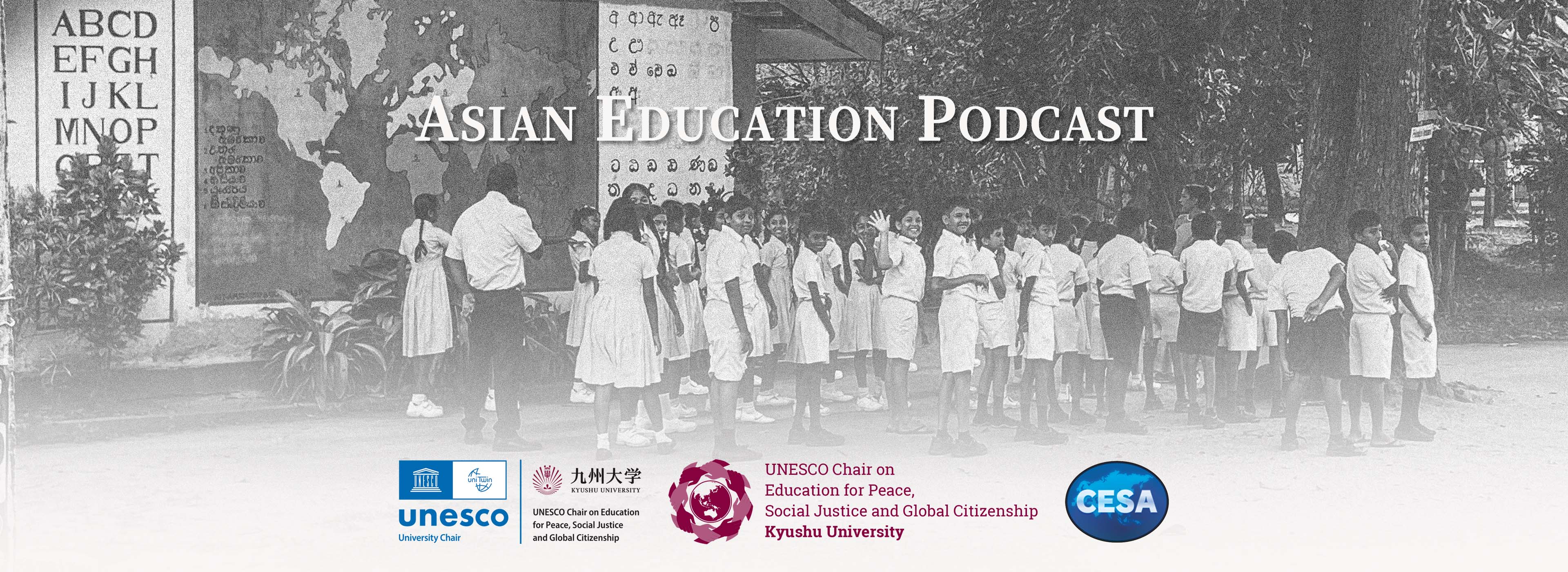
In this episode of the Asian Education Podcast, we are joined by Professor Anita Rampal, who was the Dean of the Faculty of Education at Delhi University and has over 40 years of active engagement with the state education system in India. Her long and rich career as an educationist includes her involvement in the development of the 2005 National Curriculum Framework, in particular, serving as Chairperson of the NCERT (National Council for Educational Research and Training) Textbook Development Committee. Against the backdrop of UNESCO’s Global Education Monitoring (GEM) Report for 2021/2022 on ‘non-state actors’ in education and its exceedingly positive assessments of key Indian actors such as Pratham and the Central Square Foundation, we discuss the ascendency of ‘non-state actors’ in the Indian education policy landscape and its implications for the right to education – and what is happening on the ground to students and teachers. To contextualise the rise of new types of ‘non-state actors’ in India since the turn of the century, the first part of this episode focuses on Anita’s recounting of the history of India’s quest for education for all from the 1970s onwards and the ascendency of Pratham as a key actor reshaping the Indian education policy landscape. She covers a wide range of themes including:
- The All India People’s Science Network (a national network of People’s Science Movements of India, which was established in the first All India People’s Science Congress, organised in 1988 in Kerala State, building on the initial effort to establish a national platform for science organisations in India started in the late 1960s). This relates to a discussion of how Indian scientists came to be involved, after the Bhopal Gas disaster, in collaboration with the government’s National Literacy Mission during the 1990s. This initiative was based on Freirean approaches to adult literacy, involving what Anita calls “reading and righting the world”, characterised by critical literacy, decentralised and participatory interventions, with millions of volunteers working mostly in rural areas. This led to a major rise in demand for school education
- The origins of Pratham as an organisation working on the adult literacy programme in Mumbai, in a predominantly urban environment
- A critique of the Annual Status of Education Report (ASER), released by Pratham in 2005, and subsequently published annually with support from the Planning Commission (NITI Aayog since 2015)
- Her involvement with the PROBE report (Public Report on Basic Education in India, OUP, 1999), spearheaded by Jean Drèze and released by Amartya Sen, who was awarded the Nobel Prize in Economics in 1998; also with the Right of Children to Free and Compulsory Education Act or Right to Education Act (RTE, enacted in 2009)
- Her first-hand observation of the divide within the government over the RTE, between the Planning Commission (which supported ASER and its contested claim on declining learning levels since RTE) and the Ministry of Education (which upheld the RTE)
- India’s (selective) participation in OECD-PISA in 2009 (promoted by World Bank, even though the Ministry had declined to enter), and the use of poor results (with India ranked 72nd out of 73 countries) by Pratham and its collaborators to “shame” the public education system (as students from the best provisioning states of Himachal Pradesh and Tami Nadu sat for the test), dismissing the RTE which emphasises the importance of quality of provisioning including infrastructure and staffing
- The rise of the discourse of ‘learning outcomes’ and its implications for equity
- The adoption of the National Education Policy (NEP) 2020, which contradicts key tenets of the RTE and its mandated inputs (including a good quality school in the neighbourhood, with qualified teachers). NEP instead promotes alternative routes such as Open School, which invites private actors to provide education, assuring them that there will be no focus on inputs, but only on learning ‘outcomes’.
- The phenomenon of philanthrocapitalism and the Central Square Foundation
In the second part of the episode, Anita discusses the segregation of students in Delhi schools (based on an approach promoted by Pratham, J-PAL, and the Central Square Foundation known as ‘Teaching at the Right Level’), the rise of public-private partnerships, and the implications of these recent developments for inclusive and equitable quality education. The themes discussed include:
- The use of Randomized Controlled Trials (RCTs) and ‘evidence-based’ interventions to legitimise differentiation and discrimination of children based on testing
- Authentic assessments of student learning and the importance of providing students with creative environments to learn, and of giving both students and teachers autonomy
- The introduction of the CSR initiative (via enactment of Companies Act, 2013), the rise of corporate foundations, and their influence on education policy and practice via financial contributions to favoured public initiatives
- Corporatisation of the education sector and the rise of low-cost private schooling for the poor (e.g. Bridge International Academies brought to India by the Central Square Foundation)
- India’s role as a ‘laboratory for results-based financing in education’ (GEM report, p. 110, Box 4.5)
Recommended readings:
- Ball, S.J. & Thawer, S. 2019. Nodes, Pipelines, and Policy Mobility: The Assembling of an Education Shadow State in India. In Kenneth J. Saltman and Alexander J. Means (Eds), The Wiley Handbook of Global Educational Reform. Wiley Blackwell.
- Rampal, A. 2023. Dataveillance of Children. Seminar, 765, 13-17. (https://www.india-seminar.com/semframe.html)
- Rampal, A. 2018. Manufacturing Crisis: The Business of Learning. Seminar, 706, 55-59.
- UNESCO. 2021. Global Education Monitoring Report 2021/2: Non-state actors in education: Who chooses? Who loses? Paris, UNESCO
- UNESCO-MGIEP. 2017. Textbooks for sustainable development: a guide to embedding. Delhi, UNESCO-MGIEP.

